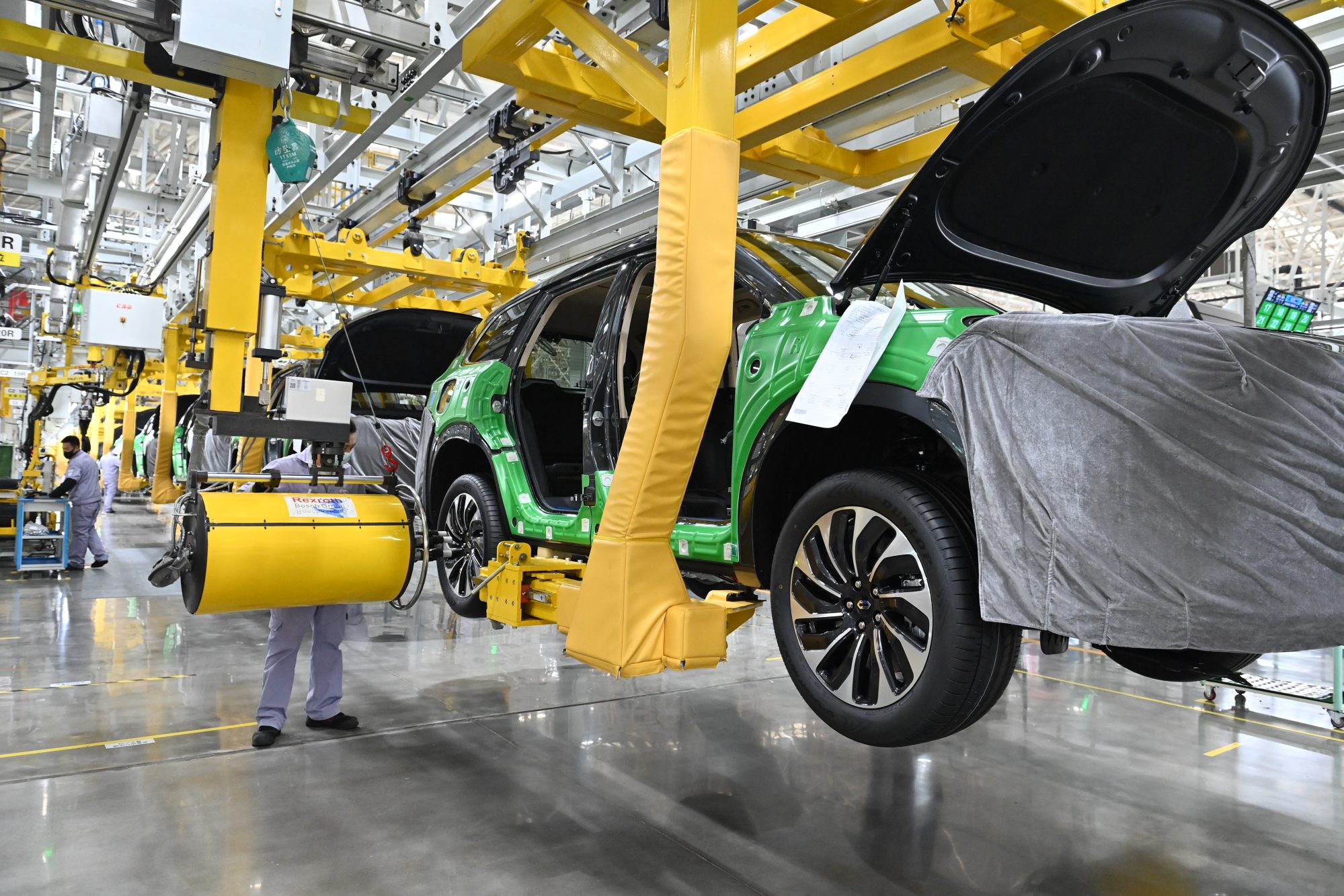
Huawei’s carmaking ambitions face challenges under US sanctions and concerns over brand identity
- Huawei’s head of smart cars Richard Yu said during a forum that the company is having trouble finding partners amid competition at home and sanctions abroad
- Providing the ‘smarts’ for electric cars was one big pivot for the telecoms equipment maker after US sanctions all but killed its lucrative smartphone business
Richard Yu Chengdong, chief executive at both Huawei’s consumer business group and the firm's intelligent automotive solution business unit, said at the China EV 100 Forum on Saturday that major European, Japanese and American carmakers will not use the Chinese tech giant’s solutions because it is under US sanctions.
He said top-tier EV makers at home also will not partner with the company on so-called smartisation because they have their own EV ambitions and may want to limit reliance on third-party services when considering valuations ahead of public listings.
“So our clients are then confined to traditional Chinese carmakers … Among them, those who don’t want to lose their souls would probably shun us,” Yu said.
Huawei’s autos partner Seres aims to sell one million EVs by 2026: report
The joke revealed an uncomfortable truth: navigating the domestic EV industry has proven to be a bumpy ride for China’s largest telecoms equipment maker. The business requires huge investment commitments, but there is a limited pool of clients.
Last year, the nascent business generated 2.1 billion yuan (US$305 million), making it the least lucrative of the six major industries in which Huawei competes.
Huawei started to pivot to the auto sector after its consumer business, particularly smartphones, was hobbled by US sanctions that cut off its access to advanced chips. Its consumer business unit saw revenue decline 11.9 per cent last year to 214.5 billion yuan.
The company relies on three different business models when working with carmakers: as a parts supplier, supplying software and services through Huawei Inside, and collaborating with carmakers on design and sales through Huawei Select.
Yu said the parts supplier model, in which Huawei competes with global car component providers such as Robert Bosch and Continental Automotive Components, was not viable because the company’s strengths are in software, cloud services and communications technology rather than car parts.

Huawei Inside recently came under pressure, as well. The programme is down to one partner, Changan Automobile’s Avatr, after state-backed Guangzhou Automobile Group Co (GAC) exited a co-development pact.
GAC announced in a stock filing last week that it had parted with Huawei on the development of AH8, a 788 million yuan project announced in July 2021 that was meant to kick off mass production of a co-developed electric SUV by the end of this year.
AH8 will be funded entirely by GAC, the filing said, with the total investment increasing to 1.23 billion yuan. This reduces Huawei’s involvement to being a component supplier for GAC’s Aion, a subsidiary that co-developed an electric sport utility vehicle with Huawei.
Aion has the “core technologies” and ample funds needed to support its own research and development, according to a person close to GAC who asked not to be named because he is not authorised to speak to media. Aion decided to develop its next car alone after considering the effect on a potential public listing in the next two years, the person added.
Under Huawei Select, many analysts see the company as effectively already making its own cars by tapping into the manufacturing capabilities of Seres Group, another Chinese carmaker.
The Select model allows companies to tap into Huawei’s capabilities in product design, marketing and sales, according to Yu.
Under this model, Huawei has been grappling with how to best promote some of the cars it helps build.
Huawei rotating chairman Eric Xu Zhijun confirmed during the firm's 2022 annual results meeting that management reversed course on the rebrand. Some companies have “abused” the Huawei brand in the past, he said.
“We wanted to call it Huawei Aito to provide consumers with more clarity on the brand identity,” consumer business group chief Yu said at Saturday's forum.
Chery Automobile, BAIC Motor, and Anhui Jianghuai Automobile Group will soon join Seres in manufacturing Aito vehicles, he added.


